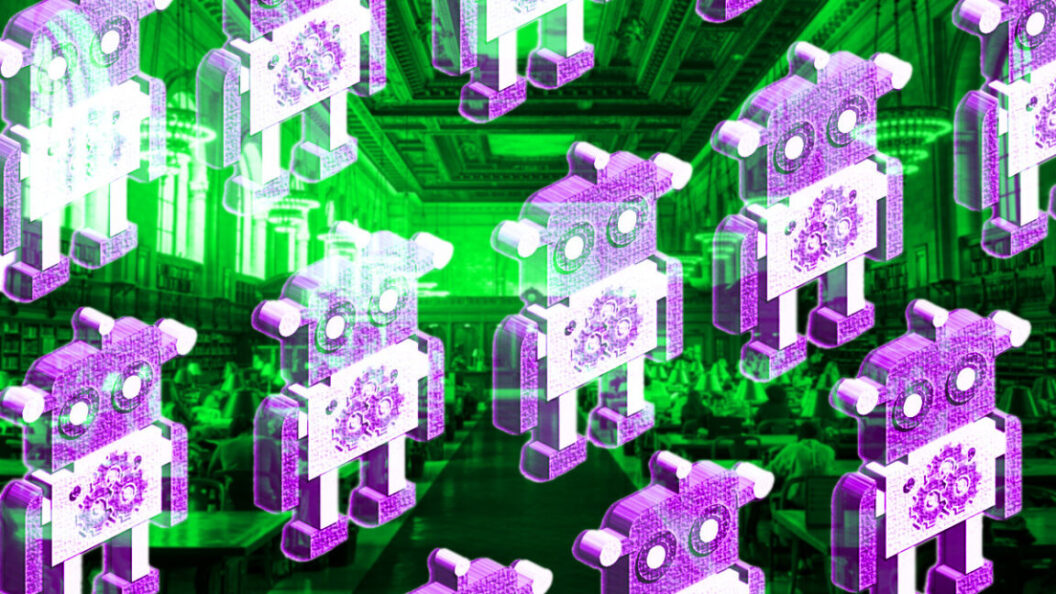Rising Challenges in AI Scraping: The Dilemmas Facing Open Knowledge Platforms
In an increasingly digital world, the rapid development of artificial intelligence (AI) has brought about significant challenges, particularly concerning the scraping of data from open knowledge repositories. Platforms like Wikimedia are grappling with AI-focused crawlers that not only bypass established data access protocols but also strain their essential services, threatening the sustainability of community-oriented projects.
Evasive Tactics of AI Crawlers
The landscape of AI data scraping has evolved, with many crawlers employing sophisticated tactics that ignore conventional rules. While traditional crawlers adhere to guidelines like robots.txt that restrict certain types of bot activity, many AI crawlers disregard these protocols altogether. Some mimic human behavior by spoofing browser user agents, while others deploy various tactics, such as rotating through residential IP addresses to avoid being blocked. This constant cat-and-mouse game compels organizations like Wikimedia to redirect significant resources toward protecting their repositories instead of focusing on improving user experience and technological advancements.
Every instance of rate-limiting bots or managing surges in unwanted traffic represents a diversion from Wikimedia’s core mission of supporting its contributors and users. Furthermore, the impact isn’t limited to content repositories; developer infrastructure—which includes essential tools for code review and bug tracking—is often under siege by scrapers. This can hinder critical operations and slow down project development.
The Broader AI Scraping Dilemma
The issues faced by Wikimedia are reflective of a broader trend in the AI scraping ecosystem. Daniel Stenberg, the developer behind Curl, has highlighted how spammy, AI-generated bug reports waste valuable human time, illustrating the inefficiency created by these incursions. Similarly, Drew DeVault from SourceHut noted that bots bombard endpoints such as git logs disproportionally compared to typical human needs, which exacerbates the challenges for developers striving to manage their tools effectively.
As organizations fight back, many are exploring a range of technical solutions. Options include proof-of-work challenges, slow-response tarpits, collaborative crawler blocklists like ai.robots.txt, and commercial offerings such as Cloudflare’s AI Labyrinth. These approaches aim to reconcile the mismatch between infrastructure tailored for human users and the aggressive demands posed by large-scale AI training.
The Future of Open Knowledge and AI Development
Despite the challenges, Wikimedia remains committed to its mission of providing "knowledge as a service." However, the organization recognizes that while its content is freely licensed, the infrastructure supporting that content incurs significant costs. Acknowledging these realities, Wikimedia has launched an initiative aimed at promoting responsible use of its infrastructure, termed "WE5: Responsible Use of Infrastructure."
This initiative raises essential questions about how to guide developers toward less resource-intensive access methods while still maintaining a commitment to openness. The conflict arises from the need to balance the benefits of open knowledge repositories with the commercial interests of AI developers. Many of these companies utilize freely available knowledge to train their models without contributing to the infrastructure that makes access possible.
Seeking Collaborative Solutions
To address this growing imbalance, improved coordination between AI developers and knowledge providers is crucial. This could be facilitated through the establishment of dedicated APIs, shared funding for infrastructure, or by promoting more efficient access methodologies. Without this collaborative approach, platforms that have historically enabled AI’s growth may face serious risks to their operational integrity.
Wikimedia has issued a sobering reminder of the stakes involved: "Freedom of access does not mean freedom from consequences." As open knowledge initiatives continue to evolve against the backdrop of AI development, organizations must seek pragmatic solutions that prioritize both accessibility and sustainability. The need for a balanced approach is more urgent than ever, as the future of these platforms—and the wealth of knowledge they offer—hangs in the balance.









